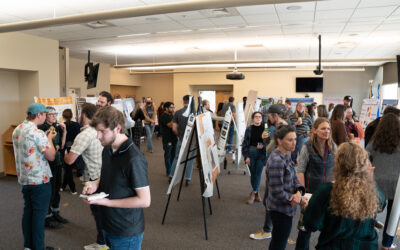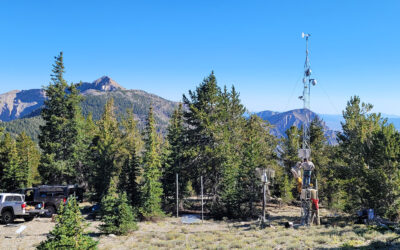The cutting-edge scientific research that happens at DRI wouldn’t be possible without the Institute’s many technologists: non-faculty employees who have special technical experience and training to support instrumentation design, laboratory and fieldwork, administration, accounting, reception, and facilities.
Each year, faculty, students, and staff have the opportunity to nominate those technologists they believe go above and beyond to make DRI a great place to work for the Technical Employee of the Year award. From those nominations, a council of technical employees selects the recipient of the award. This year, the recipient is Julie Albright, the program specialist for DRI’s Office of Education.
Get to know Julie in this Q&A!
DRI: How long have you worked here at DRI? How long have you lived in Reno?
Julie Albright: I moved to Reno in 2002 to attend UNR and never left. I’m actually a third generation northern Nevadan, born and raised in Carson City. I’ve worked at DRI for 1 year, starting in November 2018. Before that, I spent 13 years working with a financial advisory team.
DRI: What does your work involve?
JA: I am the Program Specialist for the Office of Education and Assistant Vice President of Academic and Faculty Affairs. The most noteworthy bites of the position entail processing expenses, streamlining office operations, keeping projects on track, and coordinating faculty and student events.
DRI: What do you like best about working at DRI?
JA: The people! I believe DRI is a great place to work because of the people. I enjoy working with people who are passionate about what they do and driven to see themselves, their division, and our institute as a whole succeed.
DRI: What does it mean to you to receive this recognition?
JA: I’m extremely grateful and honored to be receiving the Technologist of the Year Award. There are so many fantastic technologists at DRI, I’m surprised and humbled to have been chosen for this award. Without the training and ongoing support from technologists across our institution, there is no way I would be able to succeed as I have working for the Office of Education and AVPAFA.
DRI: What do you like to do in your free time?
JA: I enjoy amateur nature photography, traveling, reading, and baking.


